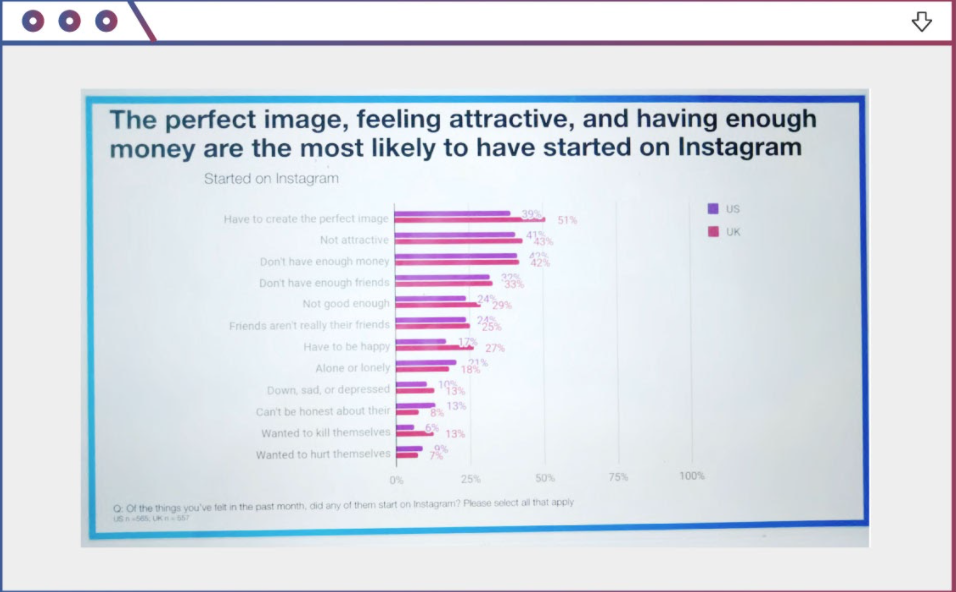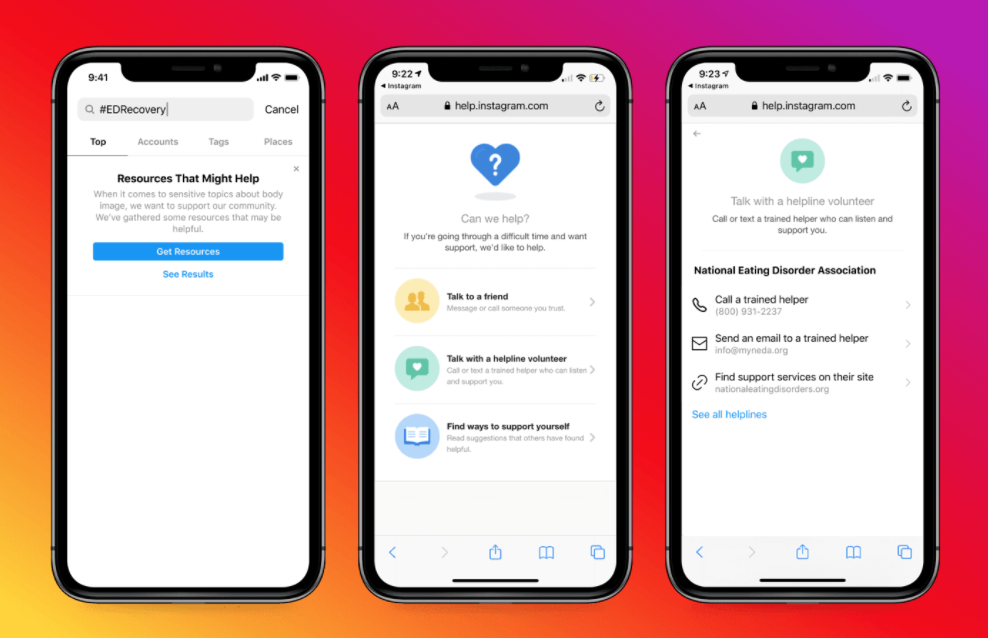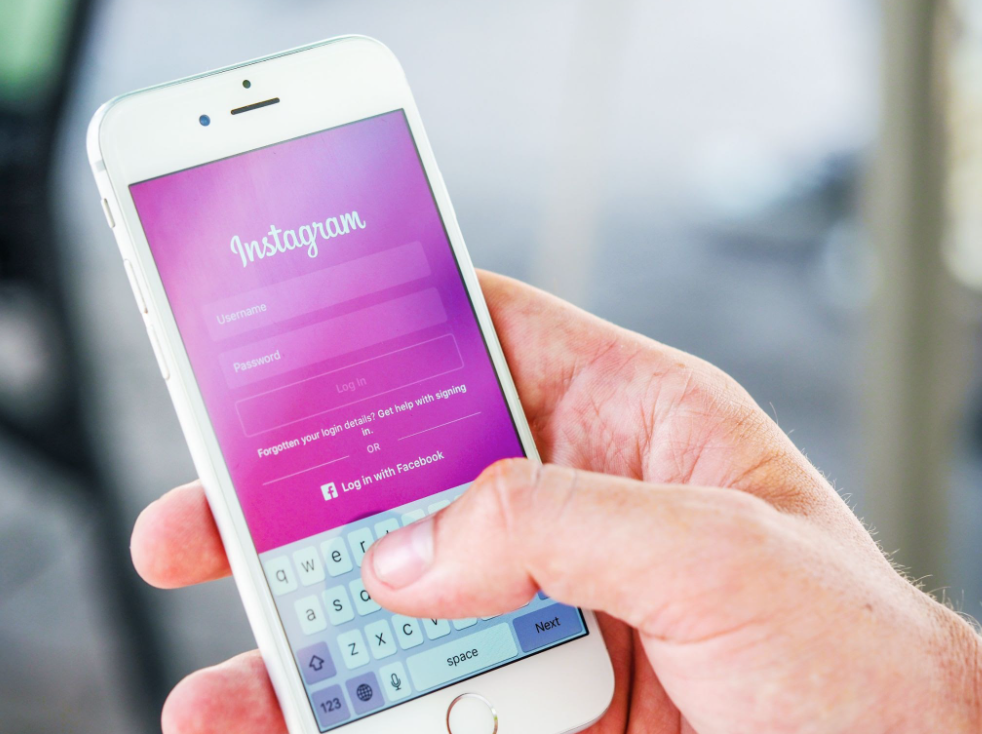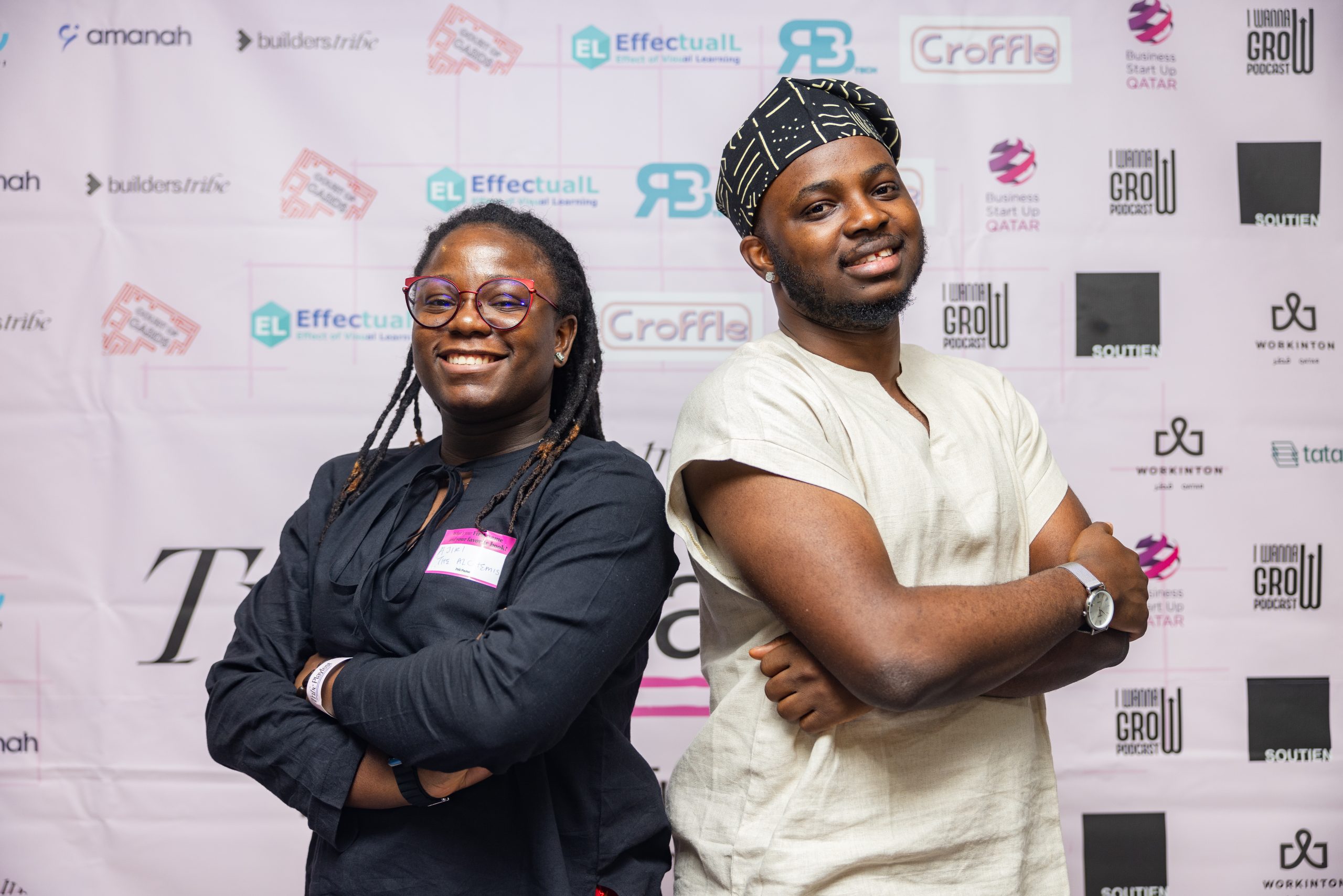Reports this week revealed how Instagram found its platform was harmful to teenage girls… but decided to hide the research.
“We do more good than bad”.
Those were the words of Head of Instagram Adam Mosseri when he rated his company’s impact on society. Yet, before saying those words, he was aware of internal research that proved otherwise.
Studies conducted by Instagram found that the app contributed to body image issues, anxiety and depression. Instead of releasing this research to the public, the social media giant has instead downplayed its harmful effects.
So what did Instagram conclude in its own research, and does it have a responsibility to make its findings public?
What the studies found
A presentation obtained by the WSJ shows that Instagram and Facebook – its parent company – were both aware of the photo-sharing app’s negative impact on teen girls. A report published by the journal highlights the extent of the findings.
In the survey conducted by Instagram, a quarter of US and UK teens reported they felt “not good enough” because of Instagram. Additionally, 20% reported feeling lonely, 10% felt “down, sad or depressed”.
Most strikingly, 6% and 13% of US and UK teens respectively pointed towards Instagram for as the source of their suicide ideation.

On a slide analysing teens’ mental health, the company acknowledged that “young people are acutely aware that Instagram can be bad for their mental health.” It then went on to add that they “are compelled to spend time on the app for fear of missing out on cultural and social trends.”
The company also notes that “social comparison is worse on Instagram” when compared to other platforms. The studies point out that while TikTok focuses on funny interactions and Snapchat emphasises silly face filters, Instagram heavily focuses on beauty, body and lifestyle.
Rushing for growth
Facebook has long been blamed for its impact on young people. In an effort to combat Snapchat’s growing share of young users, the social media company bought Instagram to help reach a younger audience. After the acquisition, Instagram raced to grow without thinking of its social impact.
Mosseri acknowledged that Facebook as a whole failed to consider the downsides of its platform until it was too late.
Wearable technology could be the next big thing for diabetes
Now, Instagram is reportedly working on an app for kids under the age of 13. However, the latest backlash may make parents even more cautious of exposing their children to the platform.
Should the research have been made public?
Speaking to the WSJ, Mosseri clarified that he doesn’t consider these findings to be “dirty laundry”. He added that he’s “very proud of the research.”
Despite the seemingly positive outlook, many have questioned why the tech giant has chosen to bury these findings.
Earlier this year, lawmakers requested Mark Zuckerberg share the company’s research analysing its impact on young people. Facebook declined the request. Last month, the company also rejected a similar request by senators.
Jean Twenge, a psychology professor at San Diego State University, compared Facebook’s secret research to that of tobacco companies a few decades ago.
“It’s not a perfect analogy, but think about cigarettes, yeah, indeed the tobacco companies have a responsibility to the public to tell people that their product was linked or could cause lung cancer, if they had internal data showing that, should that have been released?”
In rising backlash against the secrecy of the findings, many have argued that parents deserve to know if apps like Instagram are putting their children at risk.
Mosseri said he thinks people should know of research conducted by Instagram. Yet, parent-company Facebook said it couldn’t release its findings because the studies are “proprietary” and “confidential to promote frank and open dialogue”.
Instagram’s response
In a public response to the WSJ, Instagram promised more transparency on its future findings. It also justified its reasoning to conduct this research.
The popular photo-sharing app also pointed out that the report focused on the negative aspect of the research when instead, the studies found that the impact was a mix of both positive and negative.

It also discussed future changes that may come to Instagram, including nudging people away from triggering content and addressing eating disorders further.
“The most important thing we can do is embrace that responsibility and invest in trying to come up with ways of helping people in mitigating that,” Mosseri said.
Do you believe Instagram should be held more accountable for the effects of its platform?







